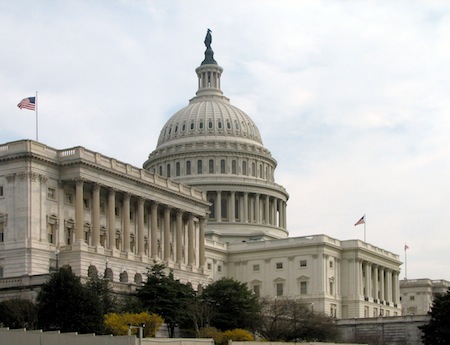Senators Grill Wheeler on JSAs

The smarter way to stay on top of broadcasting and cable industry. Sign up below
You are now subscribed
Your newsletter sign-up was successful
FCC chairman Tom Wheeler got an earful from some unhappy Senate Republicans over the FCC's unwinding of JSAs as part of TV station sales and opposition to bills preventing the FCC from regulating broadband rates.
In the "cooling saucer" of the Senate Financial Services and General Government Subcommittee, the exchanges never got particularly heated, but the displeasure of chairman John Boozman (R-Ark.) was evident.
As part of an appropriations bill last year, Republicans, including Boozman, pushed for and got an amendment grandfathering—for ten years—JSAs in place when the FCC decided to make most of those attributable as ownership interests back in March 2014.
When the FCC unwound some of those as conditions in deal approvals, a bipartisan group of senators, including Boozman, cried foul in a sharply worded letter to Wheeler.
Asked for an explanation at Tuesday's hearing, as Wheeler had been by House members in a similar appropriations hearing last month, the chairman said that it had long been precedent that when stations changed hands, the new owners essentially was granted a new license for that station, so that JSAs involved would become new JSAs subject to the FCC's new attribution rules.
Boozman said that was clearly not what Congress had intended and told Wheeler the FCC was not free to ignore clear congressional directions. Wheeler said he was not.
Commissioner Ajit Pai, also testifying, said he would be glad to work with Congress to come up with new language that would not leave room for such a loophole. He signaled he had understood Congress' intent perfectly, and that it should not have been trumped by the precedent the chairman referred to.
The smarter way to stay on top of broadcasting and cable industry. Sign up below
Wheeler also explained why he had opposed a rider on a previous appropriations bill—since morphed into a stand-alone bill that passed out of the House Energy & Commerce Committee—that would prevent the FCC from imposing rate regulation.
Boozman said he had understood, since Wheeler had told him as much at a previous hearing, that he opposed broadband rate regulation.
Wheeler read back the notes from that colloquy, pointing out that what he had said was he supported legislation codifying the FCC's forbearance of specific parts of Title II regulation (forborne in the FCC's Open Internet order) that gave it the authority to impose phone-style rate regulation before-the-fact.
He said that was distinct from the rider and bill, which he said would gut the Open Internet order, whose paid prioritization, and no throttling or blocking content and interconnection oversight provisions all implicated rates.
Pai, who supports the legislation, said that it would not do those things, but that ex post-facto actions on rates would only be ex post facto the first time they were taken, after which they would turn into before-the-fact rate regulation given their precedential weight.
Contributing editor John Eggerton has been an editor and/or writer on media regulation, legislation and policy for over four decades, including covering the FCC, FTC, Congress, the major media trade associations, and the federal courts. In addition to Multichannel News and Broadcasting + Cable, his work has appeared in Radio World, TV Technology, TV Fax, This Week in Consumer Electronics, Variety and the Encyclopedia Britannica.

